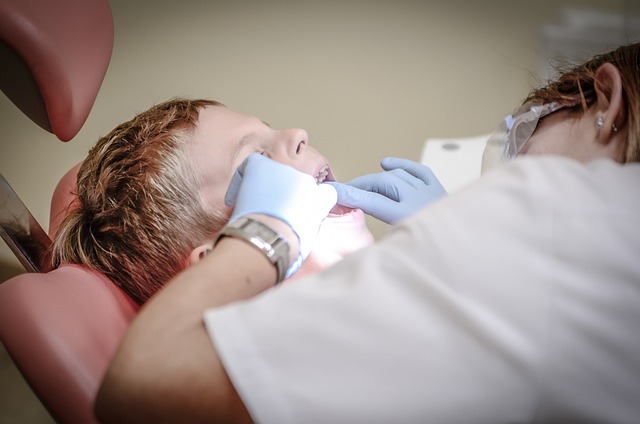Discover the truth about veneers and bad breath. Uncover expert dental tips to maintain a fresh and healthy mouth with confidence.
1. Reasons behind bad breath: exploring dental veneers as a potential cause
There can be several reasons for bad breath, and one of them is dental veneers. While dental veneers are primarily used to enhance the appearance of our teeth, they can also contribute to bad breath in some cases. Here’s why:
Poor oral hygiene: If you don’t practice proper oral hygiene habits, food particles, bacteria, and plaque can accumulate between the veneers and your natural teeth. This can lead to a foul odor in your breath. Regular brushing and flossing are crucial to prevent the buildup of plaque and food debris.
Cavities or decay: Although dental veneers are designed to protect your teeth, they can become a breeding ground for bacteria if not maintained properly. If plaque and bacteria are not removed, cavities may develop underneath the veneers, resulting in bad breath. Regular dental check-ups and professional cleanings are essential to detect and treat any dental issues early on.
2. Understanding the role of dental veneers in oral health and breath freshness
Dental veneers play a crucial role in maintaining oral health and ensuring fresh breath. These thin, custom-made shells are crafted from medical-grade porcelain or composite resin and are designed to cover the front surface of teeth. By understanding their purpose and benefits, you can make informed decisions about your oral care.
Here are some key points to help you grasp the significance of dental veneers:
-
- Veneers are an effective solution for correcting various dental flaws, including chipped, discolored, or misaligned teeth.
- They offer a long-lasting solution, as veneers are known for their durability and resistance to stains.
- Veneers are custom-made to match the color, shape, and size of your natural teeth, providing a seamless and natural-looking result.
- Since veneers are attached to the tooth surface, they can also help protect against further enamel erosion and damage.
Furthermore, dental veneers contribute to breath freshness by addressing underlying oral health issues. Their smooth surface minimizes the accumulation of plaque and bacteria, reducing the risk of bad breath. Additionally, by improving the appearance of your teeth and smile, veneers can boost your confidence, leading to better oral hygiene habits and overall well-being.
3. Debunking the myth: do veneers really contribute to bad breath?
One common myth surrounding veneers is that they contribute to bad breath. However, this is not true. Veneers themselves do not cause bad breath. Bad breath, or halitosis, is usually caused by poor oral hygiene, gum disease, or certain lifestyle habits such as smoking.
When it comes to veneers, it is important to note that they are essentially thin shells made of porcelain or composite resin that are bonded to the front surface of your teeth. These shells cover imperfections and improve the appearance of your smile. They do not affect the overall health of your teeth or gums. In fact, veneers can sometimes improve oral hygiene by providing a smooth surface that is easier to clean, reducing the accumulation of plaque and bacteria that can cause bad breath.
4. Promoting good oral hygiene: key strategies for maintaining fresh breath with veneers
Veneers are a great way to enhance your smile and achieve a natural-looking set of teeth. However, it is important to maintain good oral hygiene to ensure that your veneers stay looking fresh and beautiful. Here are some key strategies that can help you maintain fresh breath and oral health with veneers:
1. Brushing and flossing: Just like with natural teeth, brushing and flossing are essential for keeping your veneers and gums healthy. Make sure to brush your teeth at least twice a day, using a soft-bristle toothbrush and fluoride toothpaste. Flossing should be done daily to remove plaque and food particles from between your teeth and veneers.
2. Using the right mouthwash: Incorporating a mouthwash into your oral hygiene routine can help keep your breath fresh and your veneers clean. Look for a mouthwash that is alcohol-free and specifically designed for veneers or sensitive teeth. It is also advisable to choose a mouthwash that contains fluoride, which helps protect against tooth decay.
When it comes to maintaining fresh breath and healthy veneers, proper brushing techniques are key. By following these expert-approved steps, you can ensure that your veneers stay in pristine condition while keeping bad breath at bay. Remember, maintaining a routine of proper brushing techniques is crucial for both your veneers and your breath. By following these steps and incorporating them into your daily oral care routine, you can confidently tackle any bad breath concerns while preserving the beauty of your veneers. When it comes to maintaining dental veneers, it is crucial to choose the right oral care products. Not all mouthwashes and toothpastes are created equal, and using the wrong ones can potentially damage your veneers. To keep your veneers looking their best and ensure their longevity, follow these tips: 1. Look for veneer-friendly toothpastes: Opt for toothpaste that is specifically formulated for use with dental veneers. These products are typically free from abrasive ingredients, such as silica, that can scratch and dull the surface of your veneers. Instead, they contain gentle yet effective ingredients that clean your teeth without compromising the integrity of the veneers. Don’t forget to check the product label for the “veneer-friendly” or “gentle” indication. 2. Choose a veneer-safe mouthwash: Similar to toothpaste, not all mouthwashes are veneer-friendly. Some mouthwashes contain alcohol or harsh chemicals that can degrade the bonding material holding the veneers in place. Look for alcohol-free mouthwashes that are gentle on your veneers. These mouthwashes still offer oral hygiene benefits without compromising the appearance or durability of your veneers. Additionally, mouthwashes containing fluoride can provide added protection against potential tooth decay around the veneers. In order to maintain optimal dental health, it is important to be aware of common concerns and warning signs that may indicate the need for professional dental advice. By identifying these early on, you can seek appropriate treatment and prevent potential complications. Here are some common concerns and warning signs to watch out for: If you experience any of these warning signs, it is crucial to seek professional dental advice promptly. Rather than ignoring the issue or attempting to self-diagnose, a qualified dentist can examine your oral health, identify the underlying cause, and recommend appropriate treatment options. Remember, early intervention is key to preventing further damage and maintaining a healthy smile. Maintaining fresh breath is crucial for veneer recipients, as bad breath can diminish the overall aesthetic appeal of your stunning smile. Luckily, combatting bad breath from within is possible by making healthy diet and lifestyle choices. Follow these tips to keep your breath smelling clean and pleasant. 1. Stay hydrated: Drinking an adequate amount of water throughout the day helps to wash away food particles and bacteria that can cause bad breath. Aim to drink at least 8 glasses of water daily to keep your mouth moist and prevent dryness. 2. Incorporate breath-freshening foods: Certain foods can naturally freshen your breath. Include these in your diet for added freshness:
Saliva plays a vital role in maintaining oral health, and when it comes to veneers, it becomes even more crucial. Optimum oral moisture levels not only impact the longevity of veneers but also have a significant effect on breath freshness. Here’s why it matters:
1. Adhesion: Saliva acts as a natural adhesive, aiding in the long-term bond between veneers and the tooth surface. When there is an inadequate saliva flow, this bond can weaken, compromising the durability of the veneers and potentially leading to their detachment over time.
2. Bacterial balance: Saliva helps maintain a healthy oral environment by neutralizing acids and fighting off harmful bacteria. Without enough saliva, the balance is disrupted, creating an ideal breeding ground for bacteria that cause bad breath. This can be particularly problematic for veneer wearers, as improper saliva flow can result in hard-to-reach areas around the veneers where bacteria can accumulate.
When you have veneers, bad breath can become a persistent issue that may require professional help. If you’ve been dealing with this problem and home remedies haven’t worked, it’s time to consult your dentist. Here are a few signs that indicate it’s time to seek professional help: While veneers are designed to enhance your smile, they can sometimes trap bacteria and create an environment that promotes bad breath. It’s crucial to communicate your concerns to your dentist so they can conduct a thorough examination. During your appointment, your dentist will evaluate the condition of your veneers and your overall oral health. They may recommend various treatment options to address the underlying cause of your bad breath, such as:
6. Choosing the right dental products: the importance of selecting veneer-friendly mouthwashes and toothpastes
7. Addressing common concerns: identifying warning signs and seeking professional dental advice
8. Combating bad breath from within: healthy diet and lifestyle choices for veneer recipients
– Crisp fruits and vegetables: Apples, carrots, and celery stimulate saliva production, which helps cleanse the mouth.
– Fresh herbs: Parsley, mint, and cilantro contain natural oils that mask bad breath odors.
– Yogurt: Probiotic-rich yogurt can help balance the bacteria in your mouth and combat odor-causing compounds.
- Green tea: This antioxidant-rich beverage can reduce bacteria in the mouth and freshen breath.
– Citrus fruits: Oranges, lemons, and grapefruits stimulate saliva production and have a refreshing scent.9. Veneers and saliva production: how optimum oral moisture levels impact breath freshness
By seeking professional help for your persistent bad breath with veneers, you can regain your confidence and maintain fresh breath. Your dentist will guide you on the best course of action to resolve the issue and ensure your veneers continue to enhance your smile for years to come.
Conclusion
In conclusion, veneers alone do not cause bad breath, but poor oral hygiene may lead to it. Regular brushing, flossing, and dental check-ups are crucial to maintaining fresh breath and a healthy smile. Remember, veneers can enhance your appearance, but a diligent oral care routine is essential for long-term success. Keep your breath fresh and your smile shining!





